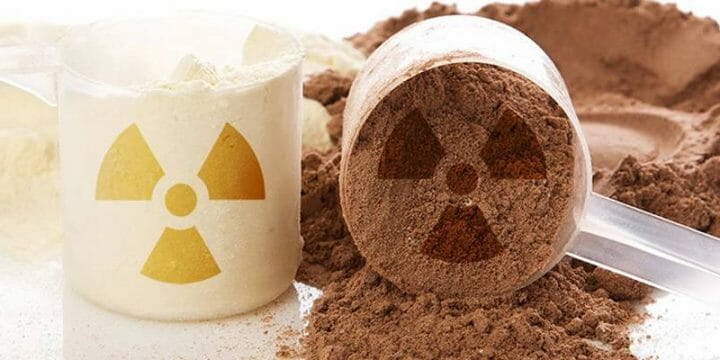Concerns about high-protein diets leading to excessive protein in urine, a potential kidney disease indicator, are common.
However, elevated protein in urine, or proteinuria, is not always a sign of kidney issues.
So, to alleviate your worries, I encourage you to keep reading and find out what urine protein means, what the possible causes and treatments are, and how to test urine protein.
Let's begin.
Quick Summary
- Protein in urine, or proteinuria, is not a disease itself but an indicator of potential health issues, including kidney problems.
- Common causes of protein in urine include dehydration, urinary tract infections, strenuous exercise, and certain medical conditions like pre-eclampsia and orthostatic proteinuria.
- Symptoms of proteinuria can include frequent urination, foamy urine, fatigue, and swelling in ankles, legs, and face.
- Personally, I find it important to be aware of proteinuria as an early sign of kidney issues, emphasizing the need for regular health check-ups and balanced nutrition.
What Exactly Is Proteinuria?

Proteinuria, indicated by more than 14 mg/dl of protein in a urine sample, is not a disease but a symptom of other health conditions.
Healthy kidneys filter blood through glomeruli, removing waste and excess water [1].
It also functions to reabsorb proteins and keep them in the bloodstream for use by the body.
If the glomeruli do not function properly, proteins pass through the kidneys and are not adequately reabsorbed into the blood, resulting in too much protein in the urine.
Causes of Protein in Urine
Proteinuria often results from glomeruli inflammation, known as Nephritis or Glomerulonephritis, and can be exacerbated by chronic conditions like high blood pressure, kidney diseases, and even diabetes, as explained by the article published on Everyday Health.[2].
However, proteinuria is not always caused by kidney damage, as there are several other possible causes of a temporary rise in urine protein that are easily treated and resolved, including the following:
- Dehydration
- Urinary Tract Infection
- Orthostatic proteinuria
- Strenuous exercise
- Pre-eclampsia in pregnant women
In light of the high protein intake, research indicates that it may increase the risk of kidney failure in people with kidney disease but has no adverse effect on kidney function in healthy individuals [3].
"Overconsumption of protein can damage your kidneys over time since they have to work extra hard to metabolize the protein."
- Nikola Djordjevic, MD, University of Belgrade
Finally, proteinuria can be caused by various severe and rare diseases.
Autoimmune diseases such as IgA Nephropathy and Systemic Lupus Erythematosus trigger the immune system to produce autoantibodies that attack the body's tissues, resulting in kidney damage and proteinuria [4].
In severe cases, proteinuria can be caused by Nephrotic syndrome, Intravascular hemolysis, and blood cancer, including multiple myeloma [5]. The body loses more protein in the urine, resulting in further damage to the kidneys.
Early detection of proteinuria through urinalysis and blood tests is essential for timely intervention, preventing progression of underlying kidney conditions and ensuring renal health.
What Are the Symptoms of Proteinuria?

Mildly elevated urine protein levels may not manifest symptoms immediately, mainly if the kidneys are in the early stages of the disease.
Nonetheless, as the disease progresses, the kidneys sustain more significant damage, resulting in a variety of symptoms, including:
- The foamy, frothy, and bubbly appearance of urine
- Edema or swelling usually in the face, abdomen, legs, and ankles
- Frequent urination
- Muscle cramps at night
- Tiredness and fatigue
If you experience these symptoms, you must seek immediate medical attention.
Testing and Diagnosis

A random urine sample is collected and tested to detect proteinuria.
Spot Urine Test
A laboratory analyst may use a chemical-containing plastic strip called a dipstick to detect protein in the urine. The color changes according to the protein concentration in your urine.
The analyst then examines a urine sample under a microscope for crystals that may develop into kidney stones. Furthermore, white blood cells and red blood cells are analyzed to rule out infection or kidney disease.
If the doctor detects persistent urine protein during subsequent retests, he may order other tests like a 24-hour urine test to evaluate other kidney conditions.
Additional tests may include the following:
Blood Test
Kidney profile blood tests such as blood sugar creatinine, blood urea nitrogen, albumin, electrolytes, eGFR are performed in the clinical chemistry section of the laboratory.
24-Hour Urine Test for Protein / Albumin-To-Creatinine Ratio
The doctor may instruct you to test for a 24-hour urine albumin-to-creatinine ratio to evaluate the level of protein in your urine, specifically albumin.
The National Kidney Foundation defines an average urine albumin level as less than 30 mg/g. Any amount more significant than this may be indicative of kidney disease.
If chronic kidney disease is further suspected, the doctor may require you to undergo imaging tests like ultrasound, CT scan, and a simple surgical procedure like kidney biopsy.
What Is the Best Way to Get Rid of Protein in Urine?

Treating protein in urine involves addressing its underlying cause. Proteinuria itself is not a disease but a symptom of other health issues.
If a patient is diagnosed with high blood pressure and the condition is causing protein in the urine, the patient may be prescribed a blood pressure medication like angiotensin receptor blockers to manage the fluctuations in blood pressure.
Is Protein in Urine a Serious Problem?
Protein in urine is not always a severe problem because the underlying cause may or may not be hurtful.
Furthermore, not everyone has a genetic predisposition to develop proteinuria. Numerous risk factors, including old age, a family history of immune disorders, high blood pressure, and obesity, lead to a higher risk of developing proteinuria.
If your urinalysis reveals a positive protein result, seek medical advice on the following steps to further assess your condition.
It may be a temporary condition that you can resolve by simply drinking enough water or supplementing the right amount of protein every day.
As the adage goes, prevention is preferable to cure. High protein in urine can help you detect kidney disease early on, allowing you to begin a treatment plan sooner and avoid serious health complications.
References:
- https://my.clevelandclinic.org/health/
- https://www.everydayhealth.com/kidney-diseases/
- https://www.healthline.com/nutrition/
- https://www.niddk.nih.gov/health-information/
- https://unckidneycenter.org/
FAQs
What Diet Helps Reduce Proteinuria?
A diet low in sodium and saturated fats, with a balanced intake of plant-based proteins, helps reduce proteinuria by easing kidney strain and managing blood pressure.
How Does Hydration Affect Protein Levels in Urine?
Proper hydration aids kidney function, diluting urine and potentially lowering protein concentrations. Dehydration can falsely elevate protein levels in urine tests.
About The Author
You May Also Like






